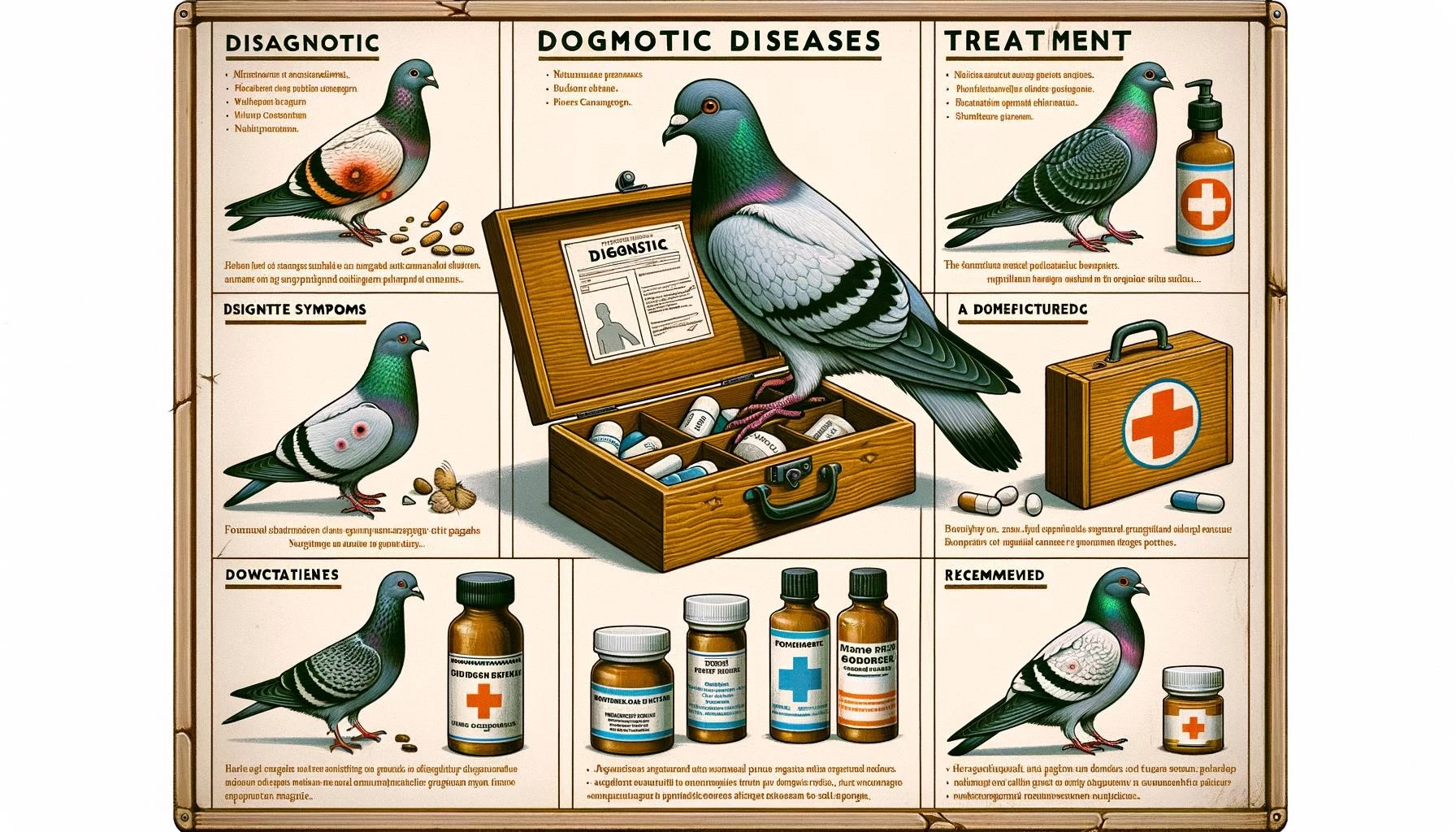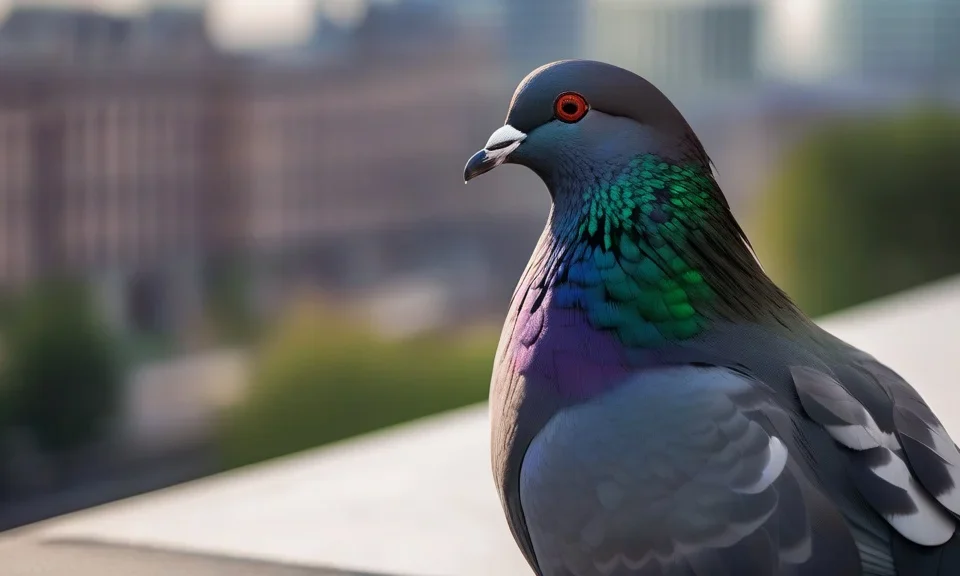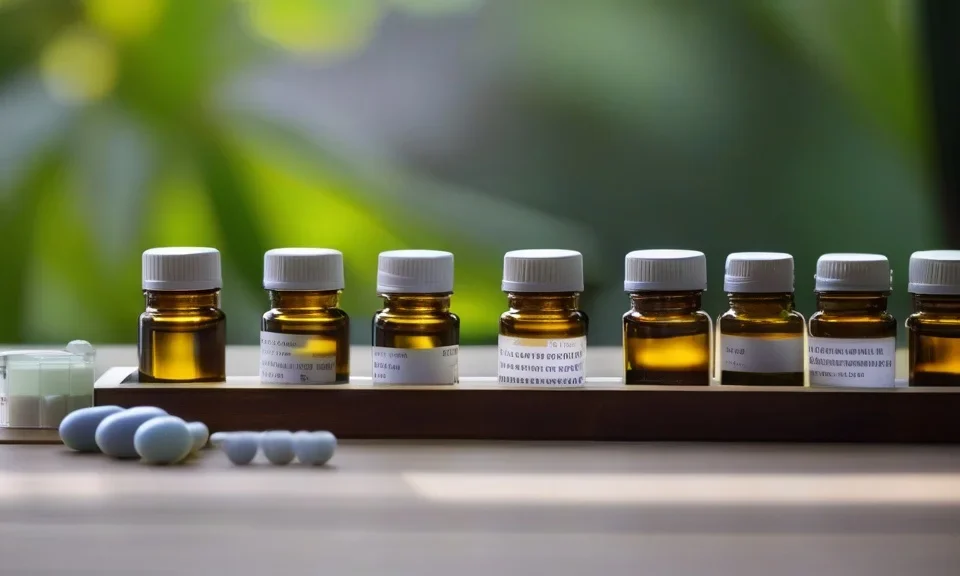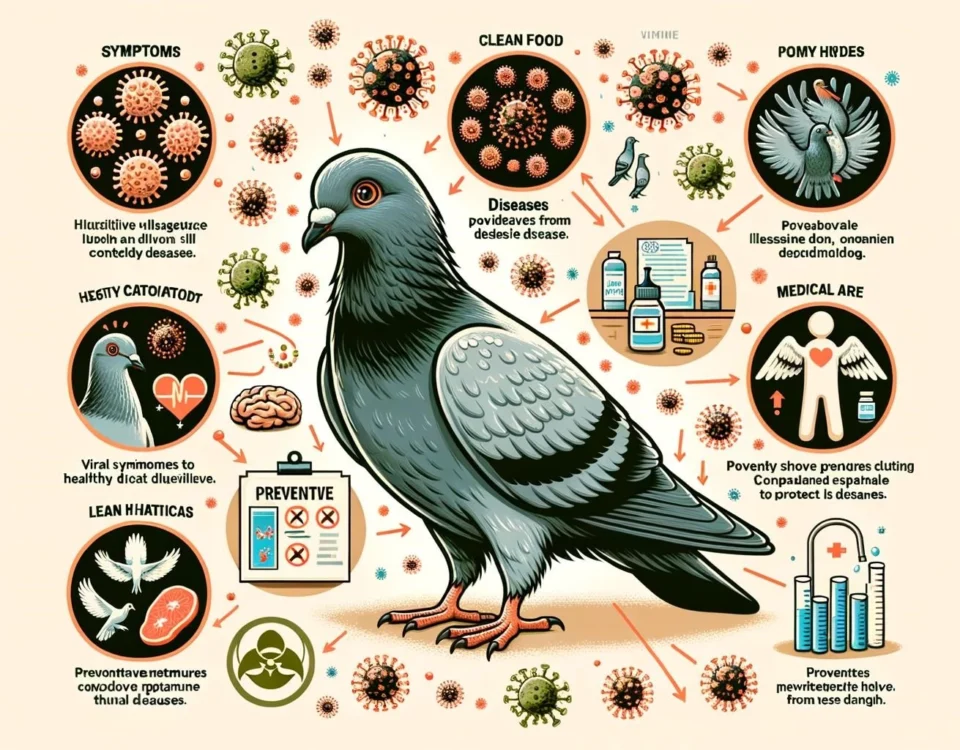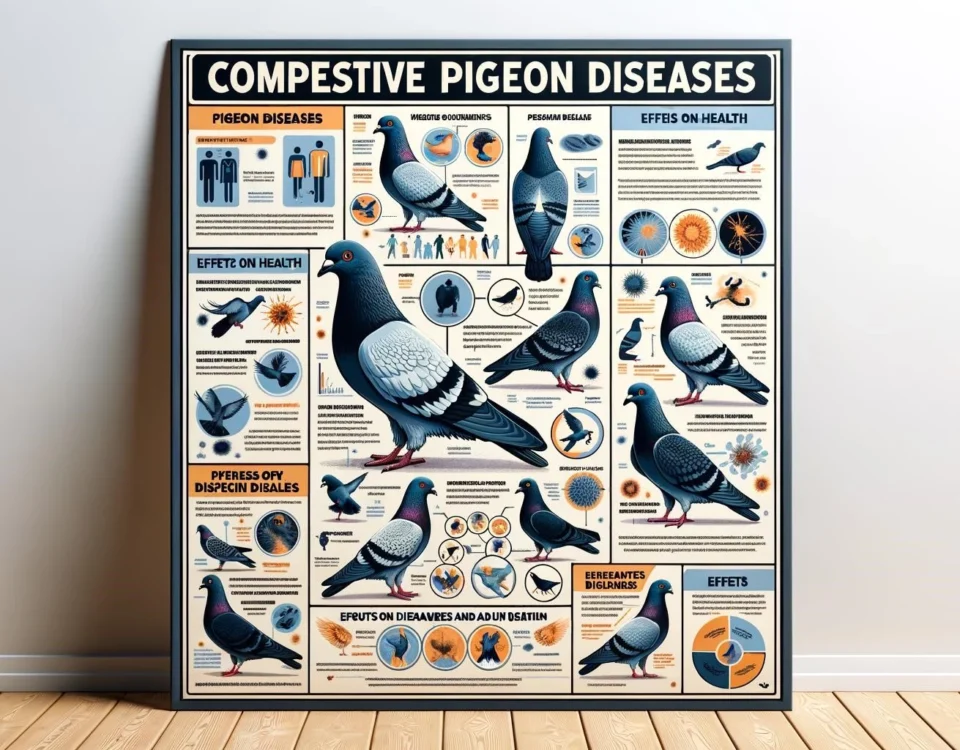Pigeons, like any other living beings, are prone to various diseases that can affect their health and well-being. Identifying and treating these diseases promptly is crucial in ensuring the health and longevity of these birds. In this article, we will explore some common pigeon diseases and their treatment options.
Key Takeaways
- Pigeons can suffer from various diseases that can impact their health and well-being.
- Common pigeon diseases include canker, respiratory infections, coccidiosis, paratyphoid, and Pigeon Pox.
- Treatment options for pigeon diseases include antibiotics, antiparasitic medications, vaccinations, and supportive care.
- Preventive measures such as proper hygiene and regular health checks can help reduce the risk of diseases in pigeons.
1. Canker (Trichomoniasis)
Canker, also known as Trichomoniasis, is a common disease in pigeons caused by the protozoan parasite Trichomonas gallinae. Infected pigeons may show symptoms such as weight loss, watery droppings, and yellow cheesy growths in the mouth and throat. Canker can be treated with nitroimidazole antibiotics such as metronidazole or carnidazole. These medications can be administered orally or added to the pigeon’s drinking water. Treatment should be continued for the prescribed duration to ensure complete eradication of the parasite. Good hygiene practices, including regular cleaning of water and feeding containers, can help prevent the spread of canker in pigeon lofts.
2. Respiratory Infections
Respiratory infections are a common problem in pigeons and can be caused by various bacteria, viruses, and fungi. Symptoms of respiratory infections in pigeons may include sneezing, nasal discharge, labored breathing, and decreased activity. Treatment for respiratory infections often involves the use of antibiotics targeted at the specific causative agent. Depending on the severity of the infection, antibiotics may be administered orally, via injections, or added to the pigeon’s drinking water. It is crucial to consult a veterinarian to determine the appropriate antibiotic and dosage for the specific respiratory infection.
3. Coccidiosis
Coccidiosis is a parasitic disease caused by the protozoan parasite Eimeria. Pigeons affected by coccidiosis may display symptoms such as weight loss, diarrhea, and lethargy. Treatment for coccidiosis involves the use of antiparasitic medications such as ivermectin or fenbendazole. These medications can be administered orally or added to the pigeon’s food or drinking water. It is essential to follow the recommended dosage and treatment duration to effectively eradicate the parasites.
4. Paratyphoid (Salmonellosis)
Paratyphoid, also known as salmonellosis, is a bacterial disease that can affect various animal species, including pigeons. Infected pigeons may show symptoms such as diarrhea, weight loss, lethargy, and decreased appetite. Treatment for paratyphoid typically involves the use of antibiotics, such as enrofloxacin or amoxicillin, as prescribed by a veterinarian. Additionally, quarantining affected birds and implementing strict hygiene measures can help prevent the spread of the disease within the pigeon loft.
5. Pigeon Pox
Pigeon Pox is a viral disease that affects pigeons and manifests as dry, crusty scabs on the skin around the eyes, beak, and feet. The disease is typically self-limiting, meaning it resolves on its own over time. There is currently no specific treatment for pigeon pox. However, supportive care can be provided to ensure the affected pigeons remain comfortable and well-nourished during their recovery.
Preventive Measures
Preventing diseases in pigeons is as important as treating them. Here are some preventive measures that can help keep pigeons healthy:
- Maintain clean and hygienic living conditions in the pigeon loft, including regular cleaning of droppings and disinfection of surfaces.
- Provide a balanced diet that meets the nutritional needs of pigeons.
- Implement a regular health check-up routine for the pigeons to detect any potential diseases early.
- Isolate new pigeons before introducing them to the existing flock to prevent the spread of diseases.
- Promote good hygiene practices among pigeon fanciers, including regular handwashing and the use of appropriate protective gear.
By being proactive in disease prevention and promptly treating any illnesses, pigeon fanciers can help ensure the well-being and longevity of their pigeons.




